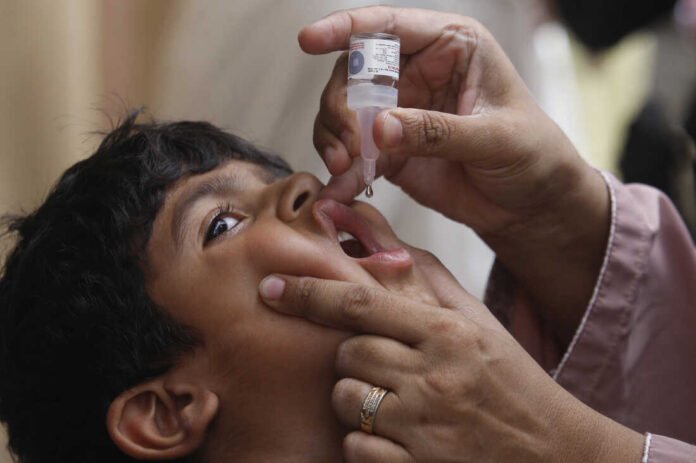
After the discovery of the poliovirus in wastewater in parts of London, Britain will provide a polio booster vaccination dosage to children aged one to nine.
According to the Health Security Agency in the United Kingdom, the vaccination project will begin in locations where traces of the virus have been discovered and vaccination rates are low. The virus is very infectious and can cause paralysis.
In a statement, Vanessa Saliba, an epidemiologist at the agency claimed that no instances of polio have been documented as well as the danger for the majority of the population, who are completely vaccinated, is negligible. Nevertheless, researchers know that the districts of London where the poliovirus is spreading have some of the lowest vaccination rates.
Polio before the Vaccine
Polio was devastating and even sometimes was thought to be a deadly disease until an inactivated vaccine was released in 1955. In around 5 out of every 1,000 instances, the virus causes irreversible paralysis in persons who have not been adequately inoculated. Polio was eradicated in the United Kingdom in 1984. Prior to widespread flu vaccination, it caused paralysis in roughly 8,000 persons in the United Kingdom each year.
Virus found in some parts of the United States
Polio was discovered in the United States for the first time in over a decade. In June, a 20-year-old unvaccinated male from Rockland County sought care in a New York City hospital. He has now been released, but he is still having trouble walking.
The virus has also been discovered in sewage in the northern New York City suburbs of Rockland and Orange counties, signifying broader local spread, according to the New York State Department of Health.
The mass of the population in the United States has been vaccinated against the illness since childhood. People who have not been inoculated are at significant risk in places with poor vaccination coverage, such as the ultra-Orthodox Jewish population in Rockland County. There is no cure for polio.
The link between the recent incidents
British health authorities said on Wednesday that they are collaborating with health organizations in New York and Israel, as well as the World Health Organization, to look into possible similarities between the poliovirus reported in London and recent occurrences in the other two countries.
According to the Health Security Agency, 116 cases of poliovirus were reportedly discovered in 19 wastewater samples from northeast and central London in early February. However, only a handful contain enough changes to be designated as vaccine-derived poliovirus (VDPV2).
Because of the parallels with naturally occurring “wild” polio, health experts believe VDPV2 to be of significant concern. People who are unvaccinated and who catch it have a slight probability of being paralyzed.
According to British health experts, several nations give youngsters an additional dosage of the polio vaccination.












